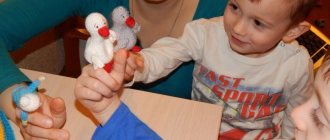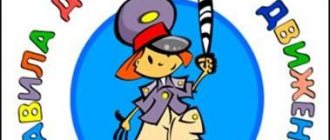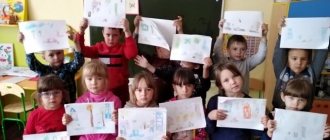Instructions
When choosing a name for a theater group, be guided by the age of its participants. It would be appropriate to name a children's group (up to 14 years old) after one of the names of fairy-tale characters (“Cipollino”, “Pierrot”, “Ole-Lukoye”). Young theatergoers and older club members may not be against Hamlet, Don Quixote or even Figaro. Do not use the names of characters in books and films whose authors are in good health without their written permission (which is sometimes very difficult to do due to various legal subtleties, material costs, or, for example, the language barrier).
Think about who will come to your performances. If you plan to perform mainly in front of, then the name of your theater group should be understandable to kids, causing them positive emotions. For example, “Cheerful Carlson”, “Pinocchio and. However, the teenage and youth audience is quite picky. In this case, there is no need to choose a too pretentious name. And at the same time, it can be unusual and even shocking. For example, “We are together”, “Light and performance”, “Steps behind the stage”.
Take your future repertoire as a basis. So, if you are going to stage sketches, reprises, parodies, then it is possible that you will like the following titles: “The Fool With Us”, “Regulars”, “Balaganchik”, “Domino”. If you are going to focus on serious dramatic works, then the name of the circle should be appropriate: “Sphere”, “Mirror”, “Theme”, “Situation”, etc.
Select the names that viewers and circle members associate with the theater, namely: - names of genres (“Drama”, “Reprise”, “Miniature”, “Interlude”); - names of structural units of works (“Phenomenon”, “Prologue”, “Exposition”); - terms related to work on the production and stage design (“Mise-en-scene”, “Props”, “Scenery”); - terms related to the structure of the stage and auditorium (“Ramp”, “Backstage”, "Gallery", "Parterre").
Decide whether it would be appropriate to name the drama group after famous playwrights or their plays. On the one hand, this means that you strive to meet a given level. But on the other hand, this may seem too pretentious, especially if the productions are not successful.
Don’t choose too long names and try to avoid qualitative adjectives (big, small, beautiful, wonderful, new, old, funny, sad, etc.). Or at least use them in such a way that the resulting phrase has at least some connection to art. For example, “New Century”, “Small Hall”, “Sad Image”.
Sources:
- name of children's circle
Opening a children's center is a good cause, and also profitable. The range of services provided by such centers is quite wide - training, medical services, entertainment and much more. But regardless of what exactly your children's center will do, it needs a good name.
Instructions
Based on the type of activity of your center. If this is an entertainment center with all kinds of slot machines, then the name should encourage active games and fun. If this is a child development center, then you don’t need anything harsh and annoying. It is better to thematically link the name to training and education. You can use Latin roots, but only well-known ones, so that no one has to look into dictionaries to decipher them. If this is a sports center, then the name needs to be active and energetic. Don’t forget about the age of the children for whom your center is designed. For the age category from 3 to 7 years you need one name, and from 7 to 18 - another. It is unlikely that sixteen-year-olds will enjoy visiting.
Avoid stamps. “Sunshine”, “Cloud”, “Star”, “Chamomile” - all this is a long-passed stage, and, moreover, too boring.
Turn to children's cartoons and books for help. Favorite fairy-tale characters can also give your center a name. Just be careful with copyrights and don’t forget about relevance - a cartoon that is popular now will not necessarily retain its position in five years, and it will be expensive to rename the center later.
When you have sketched out several options for names, conduct a phonosemantic analysis of them, that is, identify what associations people have with these words. Depending on the effect you want to create with your name, you can choose the best one from all of them.
Video on the topic
Sources:
- Phonosemantic analysis of words
Children deserve all the best, fun and interesting things. In clubs where a child spends his leisure time, plays or learns something, there is a joyful atmosphere and bright colors. The sign greets children at the very entrance to this magical place, so the name, coupled with the picture, will leave the very first impression on children and their parents.
Instructions
You can go the beaten path and name the club: Solnyshko, Druzhba, Rastishka, Antoshka, Bell, Firefly, Snow White, Cheburashka, Brook. But there are already many such names, and the idea itself contained in the word should show your imagination and originality. Keep in mind that it’s unlikely that anything offered is suitable for 10-13 year olds.
Kids love familiar things with positive meaning. They like fairy tales that end well and their characters are funny. Little children will be happy to visit a club with the name: Kolobok, Teremok, Golden Key, Zaikin's Hut. Choose several sonorous names and invite parents to vote for their favorite. Kids may be offended if they choose something that is not what they wanted, so it is better not to involve them in resolving such issues for now.
The art of puppet theater arose in ancient times and has always attracted the attention of spectators, especially children. Here, in a simple and uncomplicated form, the most important things can be told: friendship, love, mutual understanding, betrayal and many others. As a rule, a puppet theater is quite easy to make with your own hands. Some families even have a tradition of amateur puppet theater, where the roles are voiced by relatives-puppeteers: grandfathers, grandmothers, fathers, mothers and the children themselves.
But often you also want to name an original theater something so that it stands out among others. By following certain tips offered in this article, you can greatly simplify your search for a name.
- The easiest way is to name them after the heroes of well-known puppet plays: “Pinocchio”, “Harlequin”, “Malvina”, “Papa Carlo”. There are actually a lot of options. All that remains is to choose a name that does not coincide with the puppet theaters already familiar to viewers.
- Another method is connection with the plot. For example, “Papa Carlo’s Closet”, “Golden Key”, “Field of Miracles”. And this is only from one fairy tale, and there are quite a lot of them.
- An interesting name, for example, “Wooden House”. In case the body of the theatrical stage for dolls itself is made of wood. Then it will be especially relevant.
- If you show plays “on the topic of the day,” you can name them accordingly. “Satirical Stage”, “Theater of Honor and Conscience”, for example.
- If the theater is intended for showing plays among friends and family, then it can be called: “Family Theater”, “Theater of Friends”.
Read the article about how to behave in the theater.
Alfiya Pronina
Explanatory note
Artistic and aesthetic education occupies one of the leading places in the content of the educational process of a preschool educational institution and is its priority direction. For the aesthetic development of a child’s personality, a variety of artistic activities are of great importance - visual, musical, artistic and speech, etc. An important task of aesthetic education is the formation in children of aesthetic interests, needs, taste, as well as creative abilities. Theatrical activities provide a rich field for the aesthetic development of children, as well as the development of their creative abilities. In this regard, in our group I lead the “Fairy Tale” theater group.
Theater activities are aimed at developing the child’s interests and abilities; contribute to overall development; manifestation of curiosity, desire to learn new things, assimilation of new information and new ways of action, development of associative thinking; perseverance, determination, manifestation of general intelligence, emotions when playing roles. In addition, theatrical activities require the child to be decisive, systematic in work, and hardworking, which contributes to the formation of strong-willed character traits. The child develops the ability to combine images, intuition, ingenuity and ingenuity, and the ability to improvise. Theatrical activities and frequent performances on stage in front of audiences contribute to the realization of the child’s creative powers and spiritual needs, emancipation and increased self-esteem. Alternating the functions of performer and spectator, which the child constantly takes on, helps him demonstrate to his comrades his position, skills, knowledge, and imagination.
Exercises for the development of speech, breathing and voice improve the child’s speech apparatus. Completing game tasks in the images of animals and characters from fairy tales helps to better master your body and understand the plastic possibilities of movements. Theatrical games and performances allow children to immerse themselves in the world of fantasy with great interest and ease, and teach them to notice and evaluate their own and others’ mistakes. Children become more relaxed and sociable; they learn to clearly formulate their thoughts and express them publicly, to feel and understand the world around them more subtly.
Relevance
. Using the program allows you to stimulate children's ability to imaginatively and freely perceive the world around them (people, cultural values, nature, which, developing in parallel with traditional rational perception, expands and enriches it. The child begins to feel that logic is not the only way to understand the world, that something that is not always clear and common can also be beautiful. Having realized that there is no one truth for everyone, the child learns to respect other people’s opinions, be tolerant of different points of view, learns to transform the world, using fantasy, imagination, and communication with people around him.
This program describes a training course in theatrical activities for preschool children aged 4-5 years (middle group).
Novelty.
The program systematizes the material described in the literature.
Target:
Develop children's communicative and creative abilities through theatrical activities.
Tasks:
1. Create conditions for the development of creative activity of children participating in theatrical activities.
2. Improve children’s artistic skills in terms of experiencing and
embodiment of the image, as well as their performing skills.
3. To form in children the simplest figurative and expressive skills, to teach
imitate the characteristic movements of fairy-tale animals.
4. Teach children the elements of artistic and figurative means of expression (intonation, facial expressions, pantomime).
5. Activate children’s vocabulary, improve the sound culture of speech, intonation structure, and dialogic speech.
6. To develop experience in social behavior skills and create conditions for the development of children’s creative activity.
7. Introduce children to various types of theater.
8. To develop children's interest in theatrical play activities.
9. Develop a desire to speak in front of parents and kindergarten staff.
The program involves two classes per month in the afternoon - 15:45-16:05. Lesson duration: 20 min.
The activity is carried out in the form of a game:
Game exercises;
Dramatization game;
Role-playing game.
Expected Result:
Revealing children's creative abilities (intonation pronunciation, emotional mood, facial expressiveness, imitation skills).
Development of psychological processes (thinking, speech, memory, attention, imagination, cognitive processes, fantasies).
Personal qualities (friendships, partnerships; communication skills; love for animals).
Summing up forms:
Theatrical performances;
Participation in theatrical competitions.
Perspective-thematic plan:
September
1. Theoretical Topic. Introduction to the concept of theater: puppet theater “Repka”, Youth Theater, drama theater (showing slides, paintings, photographs).
Purpose: to give children an idea of the theater; expand knowledge of theater as an art form; introduce types of theaters; cultivate an emotionally positive attitude towards the theater.
2. Theoretical Topic. Introduction to theatrical professions (artist, make-up artist, hairdresser, musician, decorator, costume designer, actor).
Goal: to form children’s ideas about theatrical professions; to intensify interest in theatrical art; Expand words knowledge.
October
1. Practical Topic. Plot-role-playing game "Theater".
Purpose: to introduce the rules of behavior in the theater; arouse interest and desire to play (play the role of “cashier”, “ticketer”, “spectator”); cultivate friendly relationships.
2. Theoretical Topic. Watching the “Repka” puppet theater (together with parents).
Goal: to activate cognitive interest in the theater; develop interest in stage performances; explain to children the expression “spectator culture”; “theater begins with a hanger”; cultivate a love for the theater.
November
1. Theoretical Topic. Acquaintance with the types of theaters (shadow, flannel, table, finger, plane theaters, bibabo puppet theater).
Goal: to introduce children to different types of theaters; deepen interest in theatrical games; enrich your vocabulary.
2. Practical Topic. Rhythmoplasty.
Goal: to develop children’s ability to use gestures; develop motor abilities: agility, flexibility, mobility; learn to move evenly around the site without colliding with each other.
December
1. Practical Topic. Introduction to the finger theater. Mastering the skills of mastering this type of theatrical activity.
Goal: to develop interest in various theatrical activities; continue to introduce children to the finger theater; skills in mastering this type of theatrical activity; develop fine motor skills in combination with speech.
2. Practical Topic. Psycho-gymnastics.
Goal: to encourage children to experiment with their appearance (facial expressions, pantomime, gestures); develop the ability to switch from one image to another; cultivate a desire to help a friend; self-control, self-esteem.
January
1. Practical Topic. Reading the Russian folk tale "Turnip". Work on speech (intonation, expressiveness).
Goal: to develop a sense of rhythm in movements, speed of reaction, coordination of movements; improve motor ability and plastic expressiveness; expand the range due to the sound of the voice.
2. Practical Topic. Re-enactment of the r. n. With. "Turnip".
Goal: create a positive emotional mood; develop a sense of self-confidence; introduce children to the art of theater.
February
1. Practical Topic. Introduction to the concept of “role-playing dialogue”.
Goal: to develop the ability to build dialogues between characters in imaginary circumstances; develop coherent speech; expand the figurative structure of speech; develop confidence.
2. Practical Topic. Speech technique.
Goal: to develop speech breathing and correct articulation; develop diction, learn to build dialogues; cultivate patience and endurance.
March
1. Theoretical Topic. Reading p. n. With. "The Fox and the Crane."
Goal: develop attention, perseverance; stimulate children's emotional perception of fairy tales; foster friendly relationships between children.
Game exercises.
2. Practical Topic. Dramatization of R. n. With. "The Fox and the Crane"
Goal: to create a desire to participate in games - dramatizations; lead children to create an image of a hero using facial expressions, gestures, movements; cultivate friendly relationships.
April
1. Theoretical Topic. Fairy tale "Teremok". Introduction to the characters of the fairy tale, distribution of roles.
Goal: to develop imagination, imagination, memory in children; ability to communicate in the given circumstances; experience the joy of communication.
2. Practical Topic. Rehearsal of the play based on the fairy tale “Teremok”.
Goal: to develop expressiveness of gestures, facial expressions, voice; replenish your vocabulary.
1. Practical Topic. Rehearsal of the play based on the fairy tale “Teremok”.
Goal: continue to teach children to listen to fairy tales; develop associative thinking, performing skills, through imitation of the habits of animals, their movements and voice; cultivate a love for animals.
2. Practical Topic. Performance based on the fairy tale “Teremok” (for parents).
Goal: to improve finger theater skills; develop fine motor skills in combination with speech; cultivate artistic qualities.
Bibliography
1. L. V. Artemova “Theatrical games for preschoolers”, Moscow, “Dedication”, 1991.
2. N. Alekseevskaya “Home Theater”, Moscow, “List”, 2000.
3. L. S. Vygotsky “Imagination and creativity in childhood”, Moscow, “Enlightenment”, 1991.
4. Magazines “Preschool education”: No. 1/95, No. 8,9,11/96, No. 2,5,6,7,9,11/98, No. 5,6,10,12/97 ., No. 10,11/99, No. 11/2000, No. 1,2,4/2001.
5. Magazines “Child in kindergarten”: No. 1,2,3,4/2001.
6. Magazine “Secrets of the Puppet Theater”, No. 1/2000.
7. T. N. Karamanenko “Puppet theater for preschoolers”, Moscow, “Enlightenment”, 1982.
8. V. I. Miryasova “Playing at the theater”, Moscow, “Gnome-Press”, 1999.
9. E. Sinitsina “Games for the Holidays”, Moscow, “List”, 1999.
10. L. F. Tikhomirova “Exercises for every day: developing the attention and imagination of preschoolers”, Yaroslavl, “Academy of Development”, 1999.
11. L. M. Shipitsyna “The ABC of Communication”, St. Petersburg, “Childhood-press”, 1998.
12. T. I. Petrova, E. Ya. Sergeeva, E. S. Petrova “Theatrical games in kindergartens Moscow “School press” 2000
13. M. D. Makhaneva “Theatrical classes in kindergarten” Moscow, Creative Center “Sfera”, 2003
Organizing a school theater club means creating a whole world in which children will feel like real heroes and will be able to try on various images of their favorite characters. Theatrical art will allow you to develop comprehensively from a very early age, remove liberation, deliver correct speech, and learn to behave in public. How to create a theater group? What are the advantages of classes there for children?
Copyright
Step-by-step instructions on how to come up with a name for a children's theater studio using a real case as an example. Follow the algorithm and you will generate many interesting name options.
Preparatory stage
At the kick-off meeting we decided on what language the name should be in and what it should express. Don't ignore this step. Having correctly set the task, you can then compare the invented options with it and choose a favorite. For example, look at my brief - a list of questions that I ask a client who wants to order the development of a name from the Name is naming agency. Give yourself answers to these questions, it's really important.
The most important semes. A good name is at their intersection.
First stage: express analysis of competitors' names.
Using a search on the Internet (using Odessa resources) and in the electronic city directory, I received the following list of names:
I came across the fact that many theater studios are nameless; they operate at various children's centers, clubs, academies, and schools. Just in case, I recorded the names of these institutions, because if necessary, theater studios can use them for their identification.
The selection by search query randomly includes the Kyiv theater studios “ArtEko” and “Mkhatik”. I leave their names for analysis.
I also paid attention to the descriptors (clarifications, additions, descriptions) in the names. It turns out that theater studios and children's clubs are the most common, followed by centers and schools.
I started working by classifying names to understand which cluster was the most populated. I got the following groups:
Heroes of books, cartoons, corporate characters:
“Znayka”, “Willy-Winky”, “Chunga-Changa”, “Simba”, “Goldfish”, “Locomotive” (if you meant “Locomotive from Romashkovo”)
One of the tools used in the formation of names is diminutive forms:
“Merry Family”, “Balaganchik”, “Locomotive”, “Mkhatik”, “Domisolka”
Based on the analysis, it can be seen that the lexical cluster of theatrical terminology is practically empty, in contrast, for example, to the cluster with the names of cartoon characters and book heroes. I note this for myself as the most promising direction, because one of the requirements of the brief is that the name must be related to the theater.
There are very few studios whose names have a theatrical component
Second stage: drawing up a search map, delineating semantic fields.
I am identifying topics in which to search for a name for our theater and variety studio.
The outlined thematic blocks structure the search and guide the creative process.
Third stage: working out each part of the map.
At this stage, I filter out only obviously unsuitable options; I write down the rest according to the rules of brainstorming, without criticizing.
For example, this is the set of lexemes for the blocks “Theater Terminology” and “Theatrical Objects”
Source
Stages of preparing a performance
A children's theater group should work at least three days a week so that young actors do not have time to completely forget all previous rehearsals and theater lessons. This is very important for creating a complete and interesting performance.
So, what needs to be done to make the production memorable not only for the audience, but also for its participants themselves?
- After choosing a work, present it to the children for judgment. Everyone, without exception, should like the theme.
- When the script has been approved, it is necessary to conduct a collective reading. At this stage of creating a performance, the rhythm of the production is revealed and roles are assigned.
- After distributing the images, it is necessary to focus on reading by role. At this time, children may get a little bored, but this stage must be passed without moving, just sitting.
- Definition of the main theme, idea. The guys must understand the purpose of the work.
- The first drawing up of the image of the performance on stage. At this stage, you can also listen to the participants; they can offer good ideas for the overall course of action.
- Initially, the performance is worked out in parts, and then a complete picture is compiled from individual scenes.
- The dress rehearsal the day before the performance should be conducted as if the audience were already watching. That is, if an actor makes a mistake somewhere, let him improvise without the help of a director, because in a real situation no one will help him. Also, during the dress rehearsal there should be no stops, breaks, or negotiations. Children must practice the performance as if they were in front of an audience.
Immediately from the very first rehearsal, the circle leader must seek from each actor a believable performance and correct interaction with the other characters. If you initially allow incorrect play, then in the future it will be very difficult to correct it, since children very quickly remember both movements and manner of speaking. Show yourself how to move and communicate with your stage partners correctly.
Small roles
- I like that it fully meets the original requirements. I like the subtext embedded in it.
- The name of the customer is not confirmed immediately. They interview relatives and friends, in particular mothers with children. Those express the point of view that such a name does not sell, that parents will not like it. Several days pass. They get used to the name, it takes root, they start using it. We decide to develop a logo and corporate identity, write texts for pages on social networks.
- It was a very easy and enjoyable project. Naming took place in one stage, which does not happen very often. I usually come up with names in two or three approaches, clarifying the wishes of customers and understanding them better after presenting the first options.
I'm wondering what you think of this title? How do you like it? Would you send your child to the Little Roles theater studio? Or perhaps you have your own favorite among the options offered? Write in the comments, I will be happy to discuss them.
Common mistakes of a circle leader
Very often, a production ends up with incorrectly chosen musical accompaniment, or it occurs too often during the performance. It is worth remembering that the music should emphasize the main points, the genre should correspond to the chosen theme of the performance.
There are times when the director chose the wrong piece. In this case, children simply will not be able to perform the role well, play feelings and sensations with which they are not familiar, or generally understand the meaning of the production.
It is necessary to exclude complex sentences and incomprehensible words from the script; children simply will not be able to remember them. Replace with figures of speech that are more understandable and accessible to children’s knowledge.
It happens that the material is completely unsuitable for the audience.
Often, teachers, in order to improve acting skills and introduce a kind of humor into the performance, give male roles to girls, and boys get female characters. Only high school students can cope with such a task, and not all of them.
For the junior theater group, as we have already said, it is worth selecting scripts for children's fairy tales. But they should not be what they are used to seeing. It is necessary to make adjustments to the images of the heroes, for example, to make them more modern.
The importance of additional education
Children attending the club acquire skills and abilities that help them study in secondary school. In addition, creative activities with a passionate, caring teacher make them more organized and manageable.
Fine motor skills, which develop well in such classes, make it possible to learn to write well and create beautiful handwriting. It is also known to be beneficial for children's mental performance.
The modern name of the arts and crafts club will attract the attention of children, they will be interested in going to it. In the process of creating a work of art, a little person will overcome difficulties: learn patience, learn about his capabilities.
The teacher will help you perform boring stages of work, such as a monotonous operation repeated many times, mechanically. Then your head is freed up for a conversation on an interesting topic. While the children are shading, gluing, cutting out something, the teacher is talking about a general topic.
Names suitable for the work program for preschoolers:
Can children be actors?
Creating a theater club in kindergarten is an opportunity for children to immerse themselves in a magical world, and they all love fairy tales. Everyone will want to play their favorite character from a cartoon or literary work. Under the strict guidance of the teacher, you will get a prototype that is very similar in behavior to a fairy-tale character. The quality of this similarity will determine how the baby copes with his role.
At an early age, children absorb a lot of information like a sponge. They don't feel tired, so they can rehearse their roles endlessly. Every weekday when they come home, they will brag about their successes to their loved ones.
Important! Hearing praise, the child will consider himself a real artist. This will give him strength and inspiration to create the ideal hero.
By gradually honing roles in the theater club every year, a young talent can become a successful actor in the future. This type of art is present in schools in the form of additional classes, in higher education institutions in the form of an elective. With a serious passion for creativity, a child can attend theater clubs for children at school, and then enroll in a theater university. Thus, the city theaters will be replenished with qualified actors.
Theater clubs for children: skits, plays and lesson programs
It is desirable to develop children comprehensively from early childhood. In kindergarten, it is still difficult to identify the child’s talents that can be revealed. The clubs have one focus: computer science, mathematics, logic, sports. The exception is the theater group. The need for it in a preschool educational institution is obvious if we consider what abilities children develop after classes.
What can a theater club give a child?
A preschooler may at first not be interested in the additional activities offered - he does not know what it is. At a young age, children do not yet go to the theater, but can only watch puppet skits, where the acting is not visible. A conversation with parents or an introductory lesson that reveals the essence of the circle will help to arouse interest.
Theatrical art is capable of: revealing the inner potential of a child, helping him to relax, teaching him to communicate with peers, developing gestures and competent speech. Having tried to play in interesting images, the child will feel like a hero. He will develop a desire to play even more in the theater group in order to achieve success and surprise everyone.
Any child wants to be an object of admiration not only for his parents, but also for those around him. By showing his talent, he will increase his self-esteem and be more confident. Insularity and fear of peers will gradually disappear. There will be a disposition and desire for communication.
In addition, the circle participants will receive initial skills in development: musical, choreographic and psychological. They will learn to think creatively, train their memory and move towards achieving their goals.
How to choose the right script for a school theater?
So, after two or three months of stable classes, children remain in the circle who are interested in further classes, self-development, and they are ready for real rehearsals. Also, during this period of time, the teacher will become familiar with the potential of each member of the school troupe. It's time to choose a script.
The most important thing that the leader must remember is that the play for the theater group is chosen in such a way that every child gets a role in it with words, and there are no children left who will play silent people in the crowd.
Naturally, the choice of play must be justified and correct. Small children will not be able to participate in the production of classics, for example by Dostoevsky. They need something simpler, for example, the fairy tale “Cat House”, “Little Red Riding Hood”, and others. Children in the middle age group can already cope well with longer and more complex fairy tales, such as “The Frog Princess” and “The Tale of Tsar Saltan.” It will be interesting for high school students to stage classic works.
The script for the theater group must correspond to the event. For example, to participate in a talent competition, you need to choose positive and humorous ones, because people like to laugh. But such productions are not suitable, for example, for Victory Day; a calmer and more soulful performance is needed here.
The distribution of roles should also be carefully considered. Of course, you need to start from the wishes of the child himself, but also take into account the following point: give the children roles that are vastly different from their own character (a tomboy should try to embody the image of a calm and reasonable character, and a modest child should try to play the role of the main character or villain).
Teaching preschoolers in theater clubs
If parents notice their child’s ability to express thoughts interestingly, speak using facial expressions, or parody others, then they should boldly take him to a theater class.
Important! If this type of additional education is not available in kindergarten, you can consider a private option or inquire at local theaters about the availability of a club for younger children.
Private circles
Classes in private circles, more often called theater studios. They are led by experienced actors who are ready to share their experience with preschool children. The teacher focuses on the lesson plan, which he has drawn up for a certain age range, taking into account its psychological characteristics.
The purpose of the private circle is to prepare the children for the performance of the finished performance, which they will show to the audience from the stage. During intermediate classes, they get acquainted with the roles, rehearse them, and try to get used to the character for a brilliant performance. After the initial stage, the details of the image begin to be honed: work on speech and intonation, staging movements, working on facial expressions.
Important! This creates a lively and interesting image of the hero. They are the main aspects in acting for a successful performance.
An experienced actor will be able to interest a child in playing any genre in a private circle, even drama. He has in-depth knowledge of this creative process, which inspires trust and respect in his students. The leader also shows his acting skills, which arouses admiration among the guys. A positive example gives them a strong incentive to perform their role brilliantly. A private studio can make a child fall in love with the theatrical world.
Theater groups at theaters
It is no less interesting for children to attend classes in a theater club at existing theaters. Here they are also taught by real actors, whose performances the students can see in performances on a real stage. A drama club can be created at the theater, which will not yet stage plays for children based on the works of the classics, but will offer performances that are interesting to them.
Theater club at the theater
The spirit of the institution, under the sensitive work of teachers, helps the little actor’s creative potential to fully unfold. He works through each lesson with interest during rehearsal, repeating difficult moments two or three times. A big plus of the classes is that children perform roles on a real stage, which instills responsibility for the quality of the game.
Activities in kindergartens
For young children, kindergarten is a place of limitless creativity. Here they draw, play contact games, play sports, and learn poetry. During the working day, teachers from the theater club can visit them to help children express their individuality through theatrical performances. All children can attend trial classes, but those who are most interested will come to subsequent classes. They are already listening carefully to what role they will have to play in the work. At home, with their parents, they study the notes, where the words of the character being performed are written out.
Kindergarten actors
Even though the children are still small in kindergarten, it is not so easy to perform a theatrical performance with them. It is important for the leader to convey to their understanding what theater is and how to play the role. Even in a teenage club it is easier to teach - the energy reserves of children decrease with age.
Features of the classes
The plan for a theater club should be drawn up depending on the psychological characteristics of the children and their age. Classes will allow children to develop in various directions: musical, theatrical, choreographic, psychological. Also, such classes will teach the child to think creatively, develop memory, and gradually achieve the goal.
The finished performance is the final result that the guys will show to the public. To achieve the result, preparation takes place: rehearsals, familiarization with the role, “getting used to” the character, staging speech and movements, liberating games, worries about successes and failures. All these points are the main aspect.
A theater group can make a child fall in love with it; in the end, after several classes, only the most interested children will remain in the created group.
Name for a theater club in kindergarten
A circle teaching theater arts cannot exist without a name. In kindergarten it has a certain meaning. In order for the name alone to arouse a child’s interest in attending classes, it must be as clear as possible to his mind and recognizable by ear. This could be a name that sounds like a children's TV show or a popular cartoon. As a rule, preschoolers watch children's channels on TV and understand their essence.
Trying on a role from TV will definitely interest them. The name for a theater club in kindergarten is something fun, catchy, interesting, without any signs of seriousness. For example, good options for how to name the group: “Grimasiki”, “Fixies”, “Tram-tam-tam”, “Wonderland”, “Fantasers”.
Work with children
Class planning plays an important role in achieving your goals. Therefore, the theater group must work in combination of various types of arts. You shouldn’t divide your activities like this: today we sing, tomorrow we dance, the day after tomorrow we play. Each lesson should be filled to the maximum with all types of art, so it will be more interesting for the child, and the result will be achieved in a shorter time.
The theater club program should include reading with children based on the roles of classical works, plays, tales, and ready-made scripts. This way, the teacher will be able to immediately assess the situation, work with each child separately, and choose for each the role of the future performance according to his capabilities.
Tongue twisters have a good effect on speech development. To make it more interesting, you can put the children in a circle and give them a ball. The game is simple: whoever gets the ball in his hands says a tongue twister. The ball must be in the hands of each member of the circle for everyone to participate.








